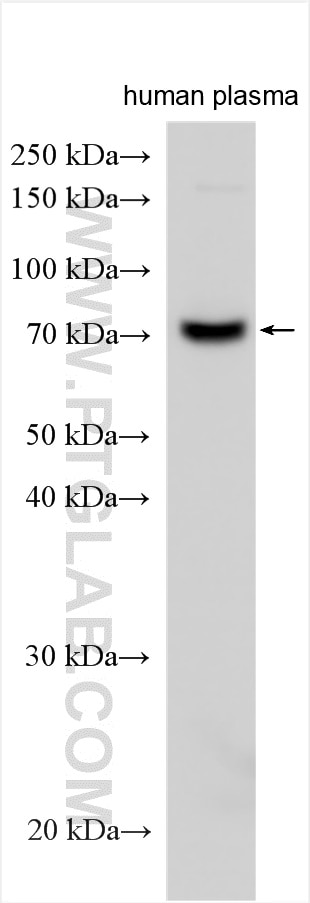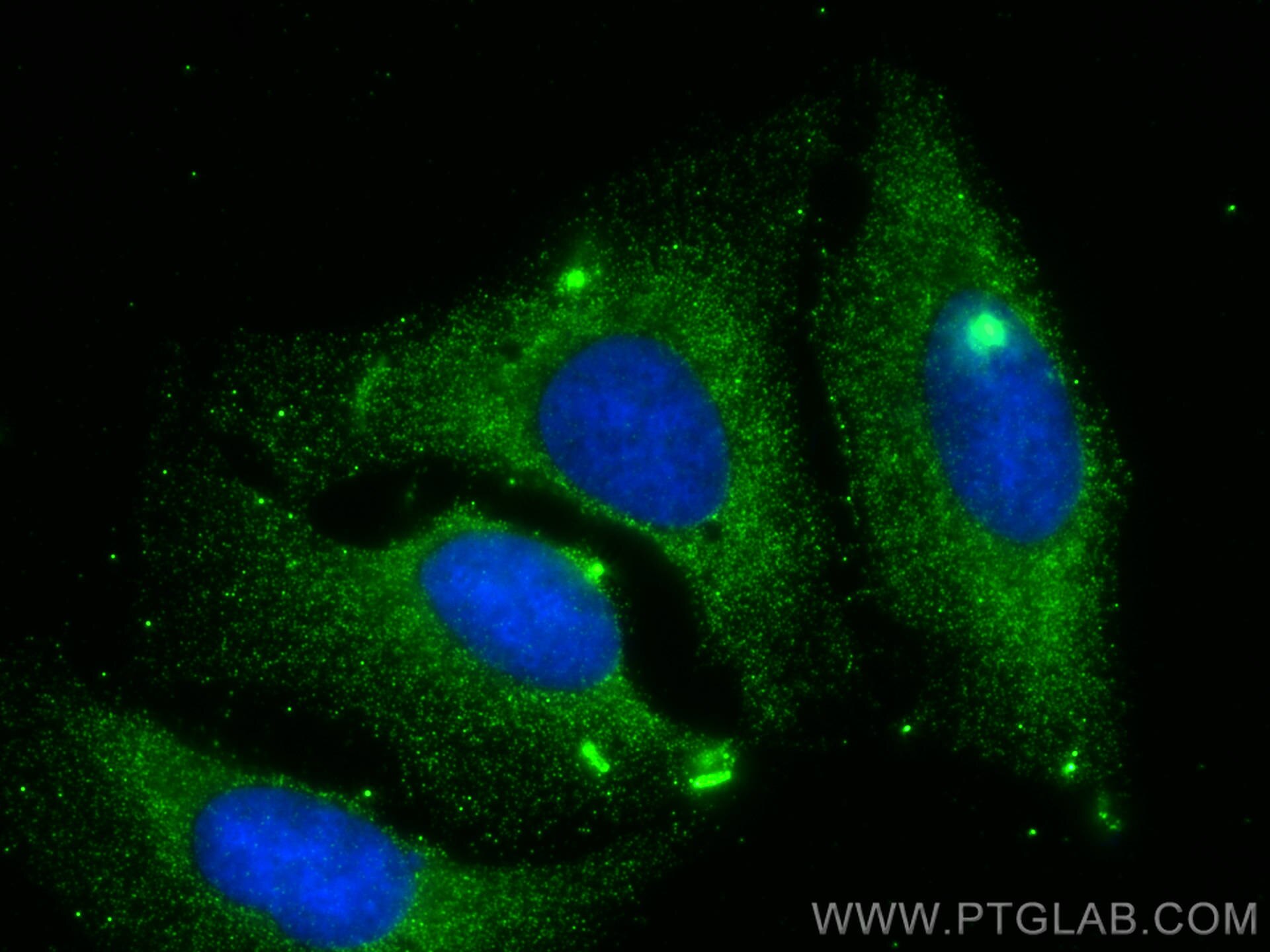Tested Applications
| Positive WB detected in | human plasma |
| Positive IF/ICC detected in | U2OS cells |
Recommended dilution
| Application | Dilution |
|---|---|
| Western Blot (WB) | WB : 1:500-1:3000 |
| Immunofluorescence (IF)/ICC | IF/ICC : 1:200-1:800 |
| It is recommended that this reagent should be titrated in each testing system to obtain optimal results. | |
| Sample-dependent, Check data in validation data gallery. | |
Product Information
24820-1-AP targets C1RL in WB, IF/ICC, ELISA applications and shows reactivity with human, mouse samples.
| Tested Reactivity | human, mouse |
| Host / Isotype | Rabbit / IgG |
| Class | Polyclonal |
| Type | Antibody |
| Immunogen | C1RL fusion protein Ag20324 Predict reactive species |
| Full Name | complement component 1, r subcomponent-like |
| Calculated Molecular Weight | 487 aa, 53 kDa |
| Observed Molecular Weight | 70 kDa |
| GenBank Accession Number | BC156780 |
| Gene Symbol | C1RL |
| Gene ID (NCBI) | 51279 |
| RRID | AB_3085758 |
| Conjugate | Unconjugated |
| Form | Liquid |
| Purification Method | Antigen affinity purification |
| UNIPROT ID | Q9NZP8 |
| Storage Buffer | PBS with 0.02% sodium azide and 50% glycerol , pH 7.3 |
| Storage Conditions | Store at -20°C. Stable for one year after shipment. Aliquoting is unnecessary for -20oC storage. 20ul sizes contain 0.1% BSA. |
Background Information
C1r-like serine protease analog protein (CLSPa), also named as CIRL contains a CUB domain and a serine protease domain, possessing characteristic catalytic triad. C1RL is upregulated in glioblastoma (GBM) and has been proved to be a prognostic marker in hepatocellular carcinoma and renal cell cancer (PMID: 32993564). C1RL has a calculated molecular weight of 53 kDa, and this antibody can detect a band at 70 kDa due to possible N-glycosylation (PMID: 15358180).
Protocols
| Product Specific Protocols | |
|---|---|
| WB protocol for C1RL antibody 24820-1-AP | Download protocol |
| IF protocol for C1RL antibody 24820-1-AP | Download protocol |
| Standard Protocols | |
|---|---|
| Click here to view our Standard Protocols |





